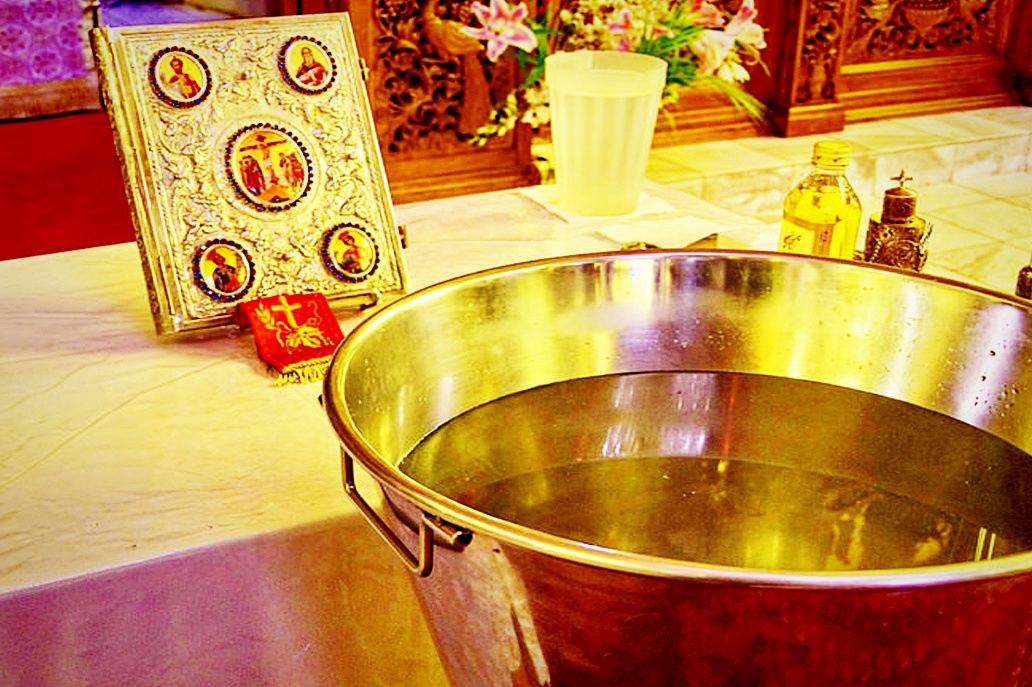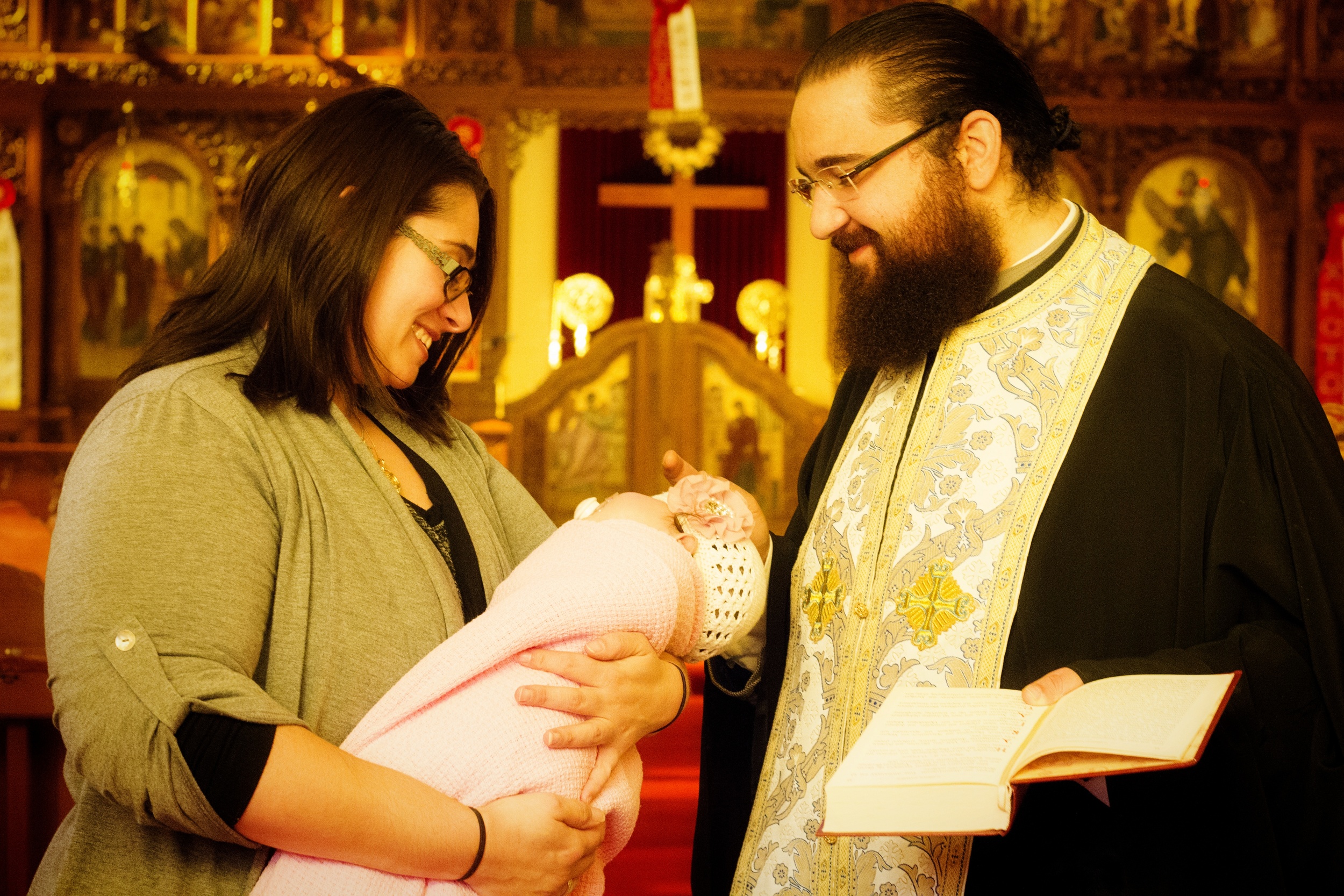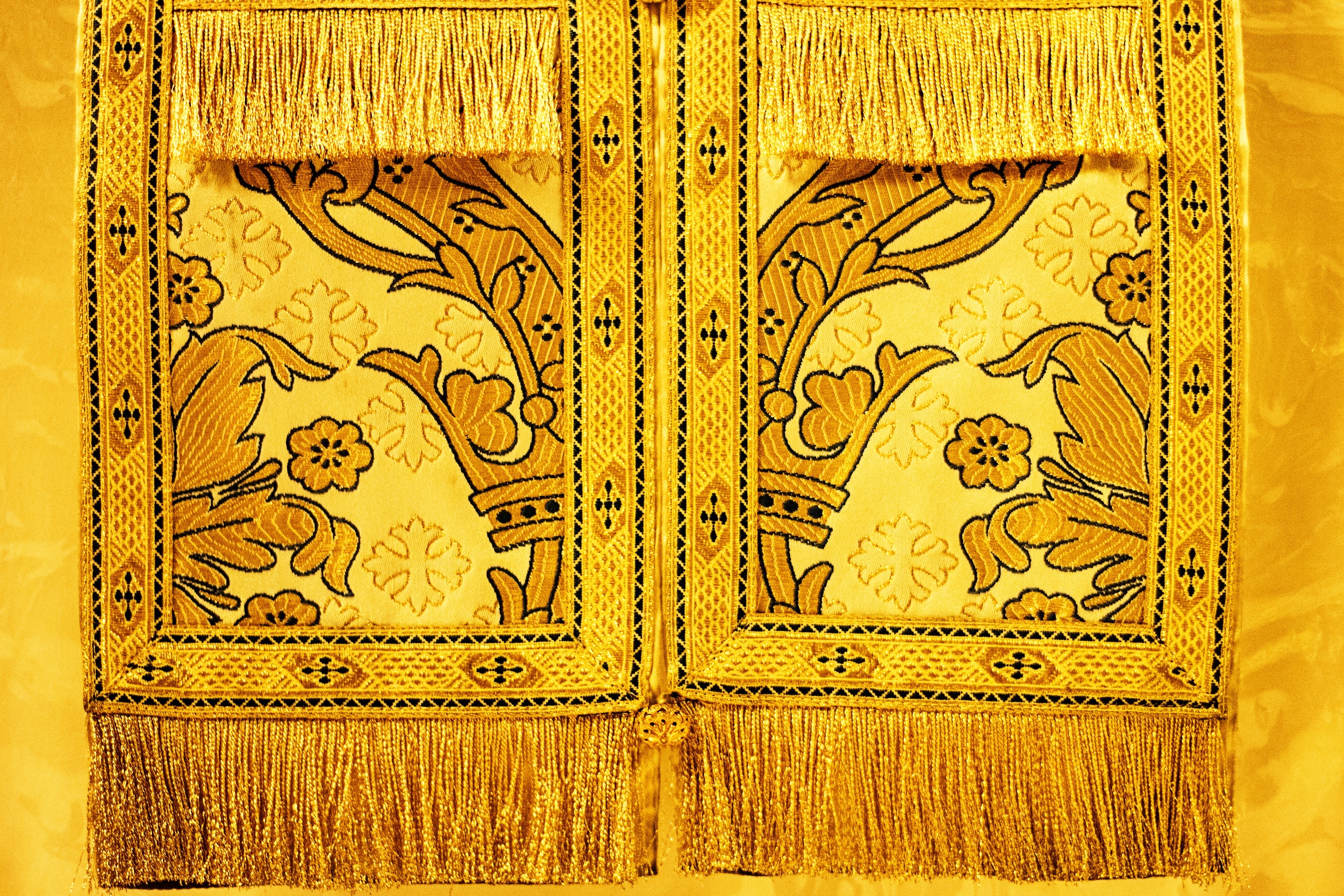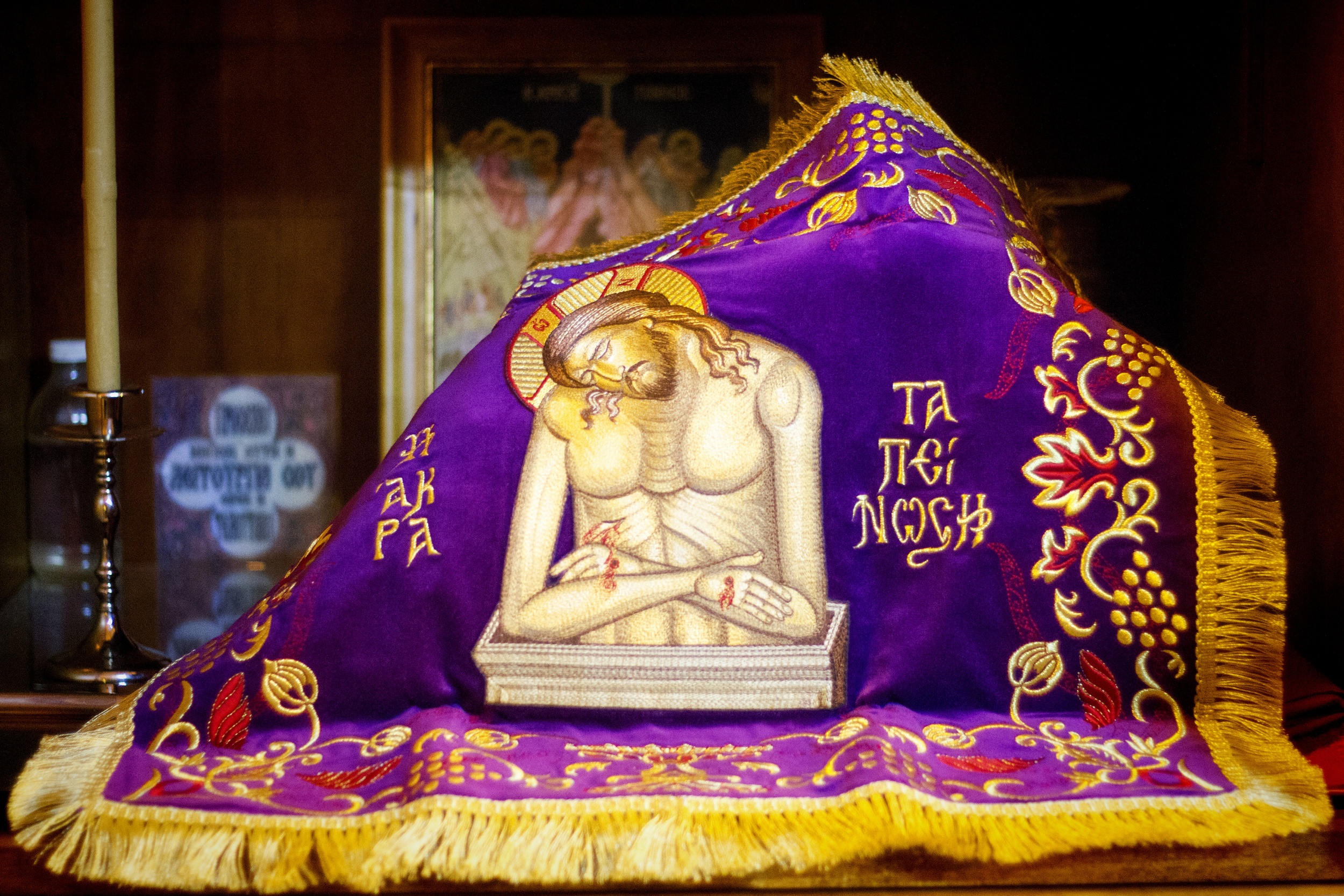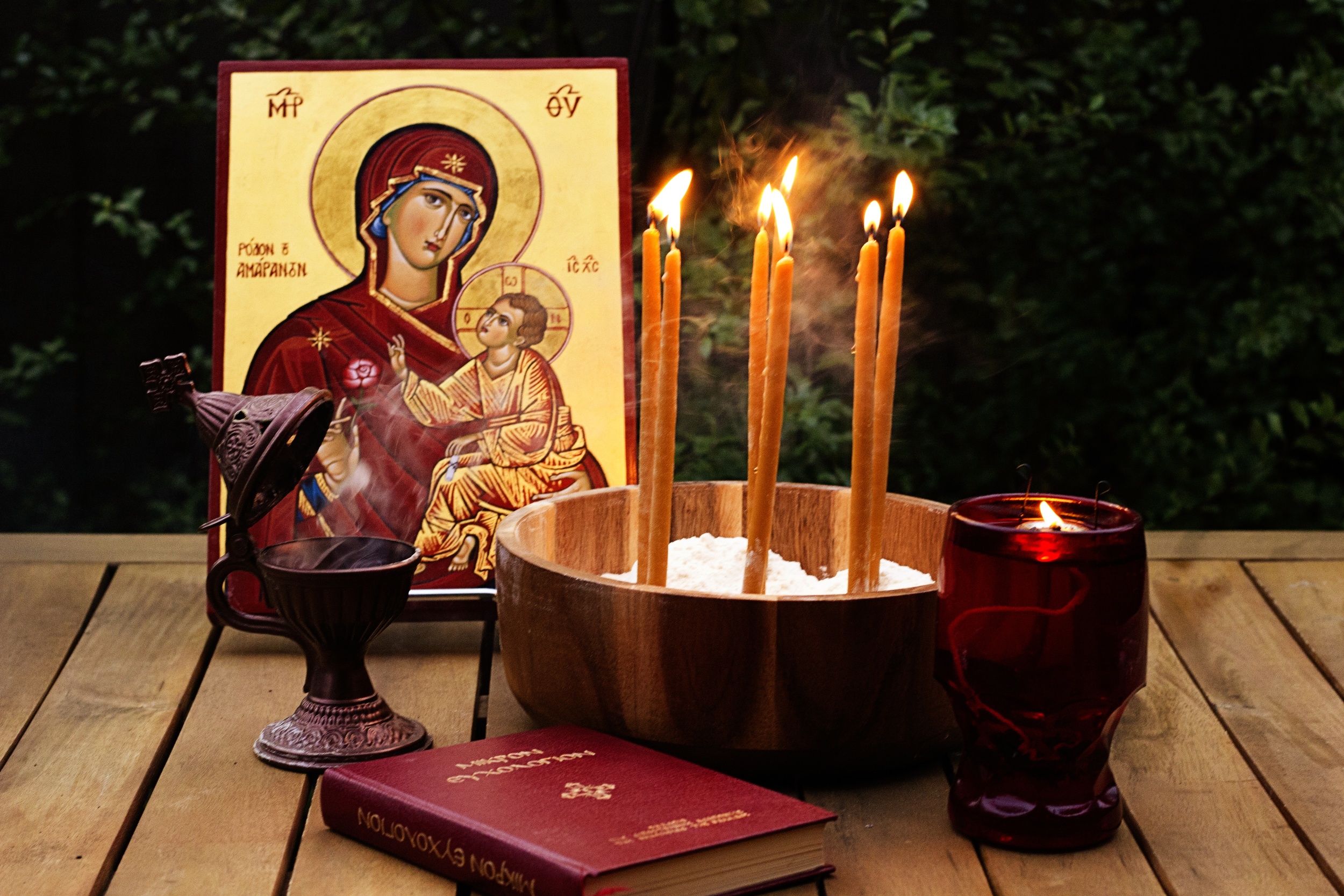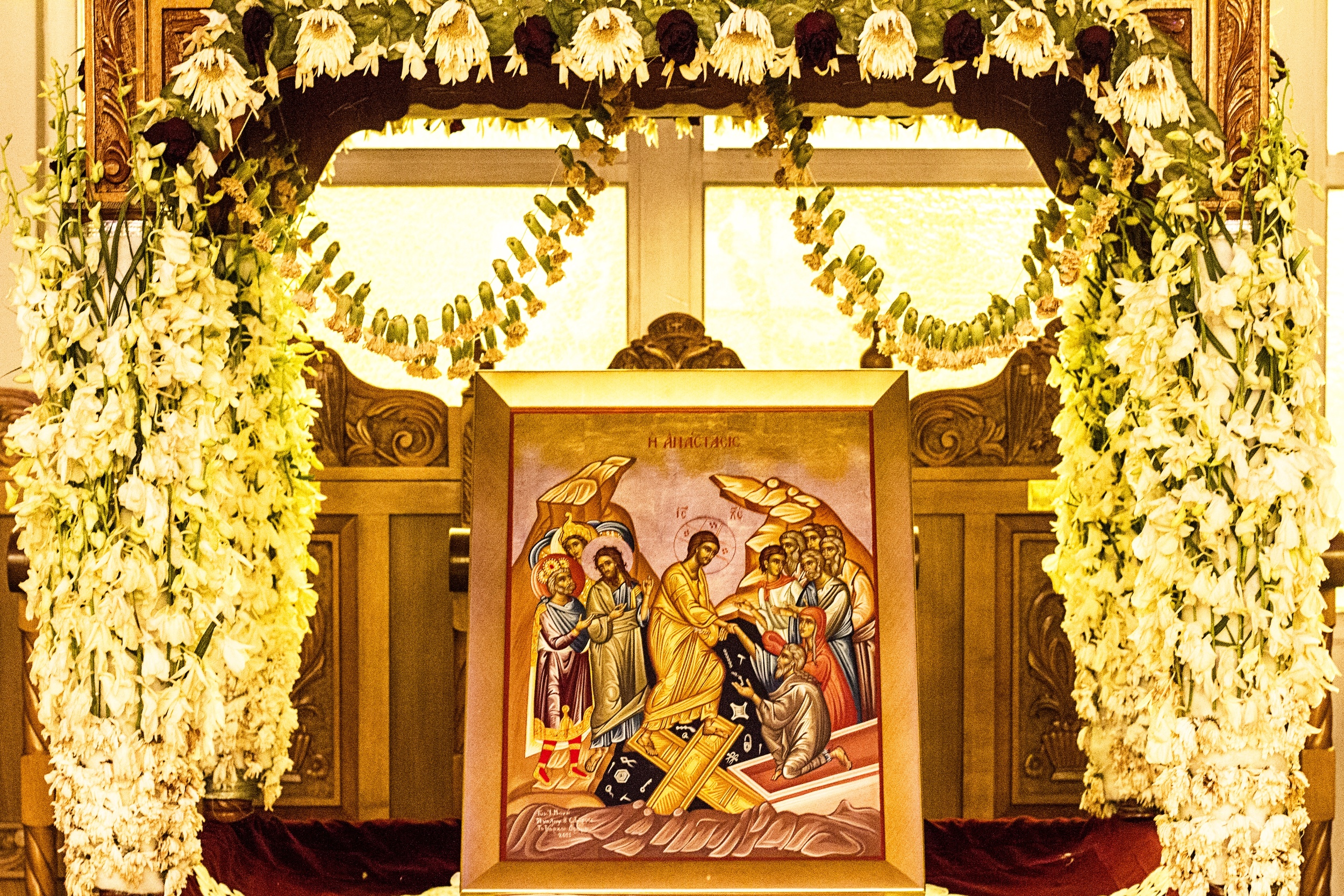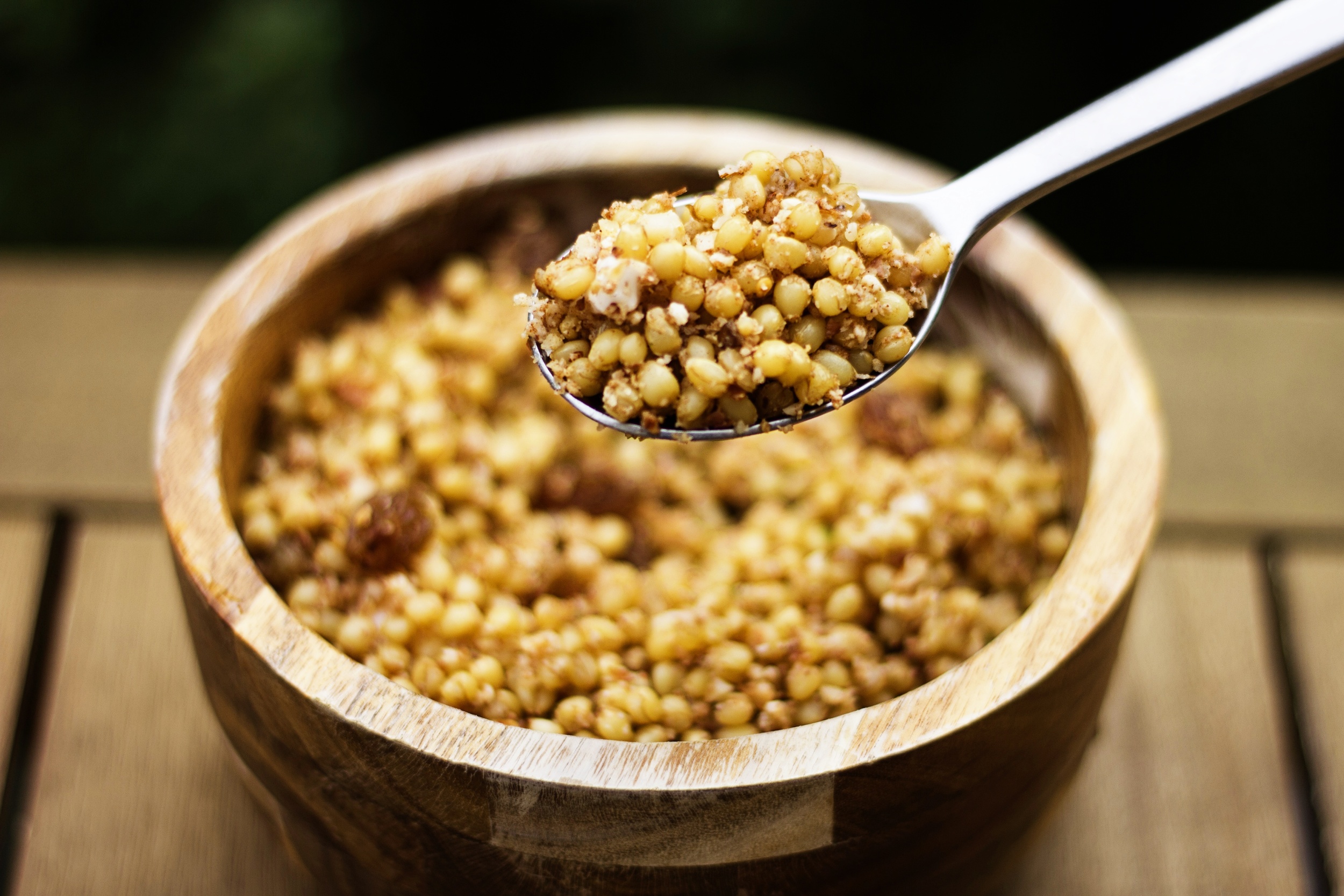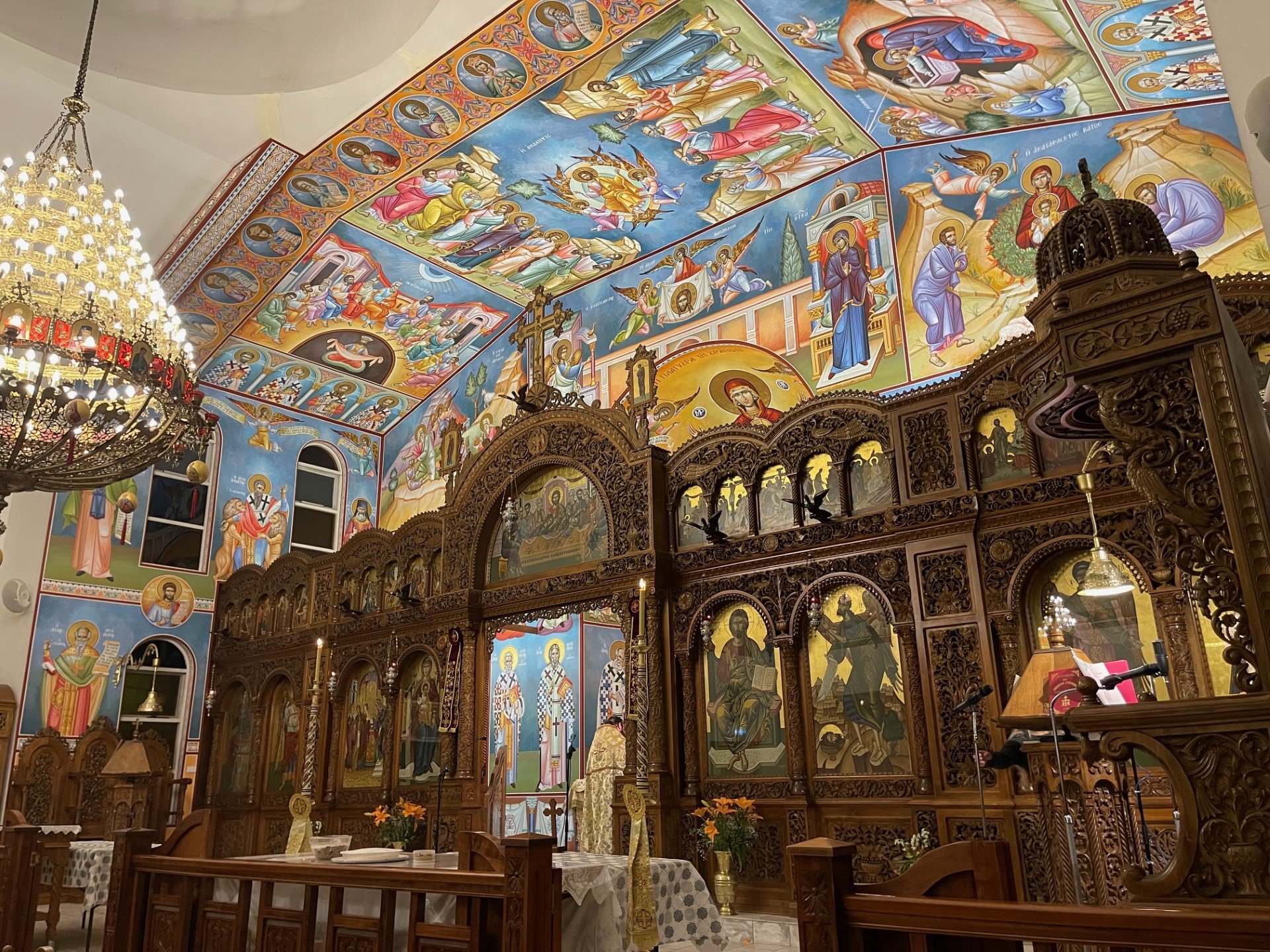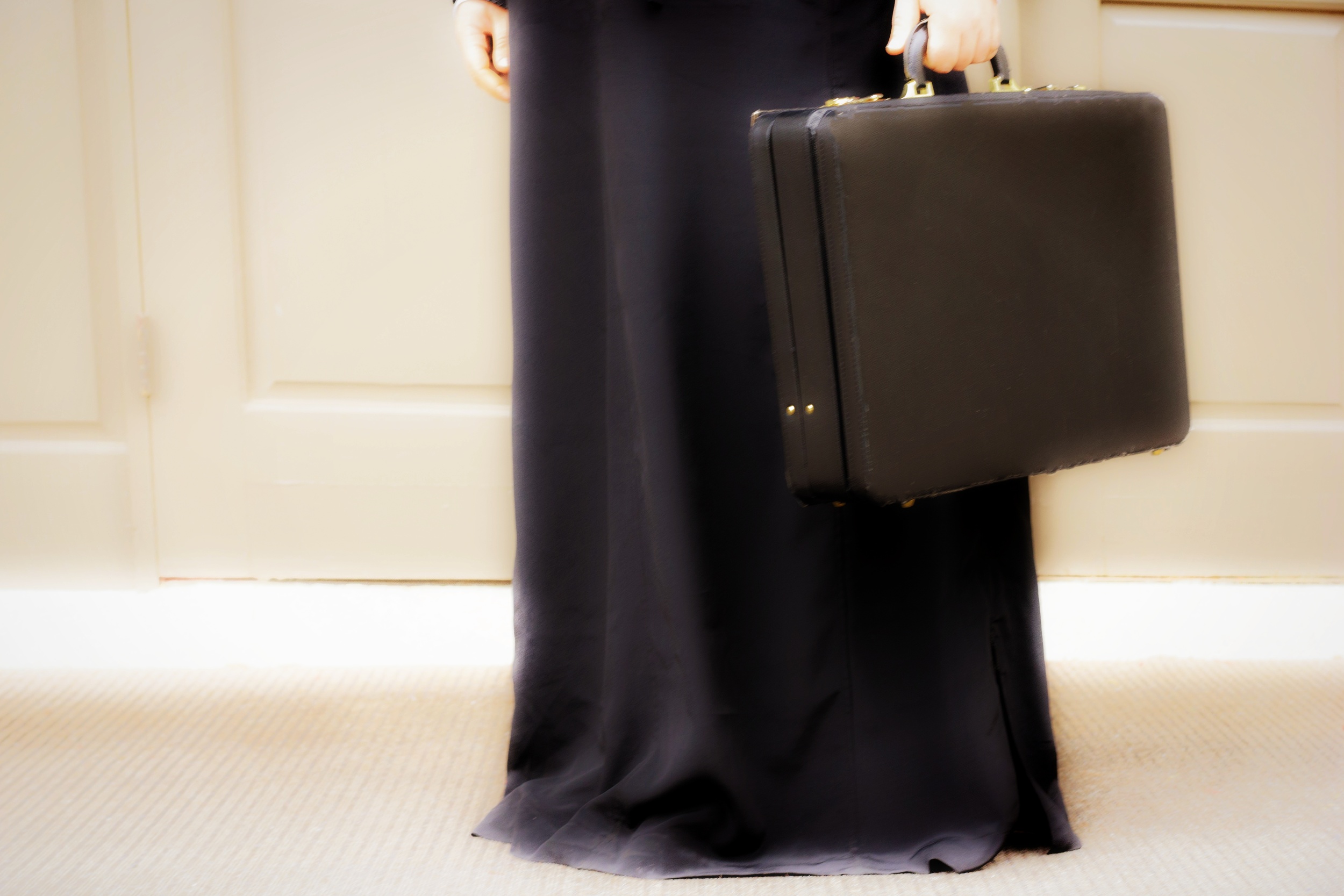BAPTISM & CHRISMATION
Baptism is a holy sacrament whereby we are fully initiated into, and become members of the Orthodox Church. We are commanded to be baptised by Jesus. Christ himself, though sinless, was baptised in the River Jordan. After His resurrection, He commanded His Apostles saying, "Therefore go and make disciples of all nations, baptising them in the name of the Father and of the Son and of the Holy Spirit” (Matt 28:19).
During Holy Baptism a death and resurrection takes place. In the Orthodox Church we are entirely immersed, as this symbolises death. What death? The death of the “old, sinful man”. After Baptism we are freed from the dominion of sin. The Holy Font, which symbolises both a tomb (as mentioned earlier) and a womb, where those who are baptised emerge reborn into the new Divine life becoming citizens and members of God’s Kingdom.
If an adult who has not been baptised Orthodox and sincerely wants to be received into the Orthodox Church, please contact Emilio on 0434 816 134.
To book a Baptism, please contact us.
FAQs
What documentation is required for a baptism?
In order to prepare the baptism certificate, 3 documents will be required:
The Baptism certificate of the Godparent (who must be an Orthodox Christian, and Church canons state there can be only one Godparent).
The birth certificate of the child that is to be baptised.
If available the Archdiocesan marriage certificate of the child’s parents (in order to keep spelling of names uniform).
These documents can be emailed to presentationofourlord@gmail.com or delivered to the Church in person.
What fees are payable on the day of the Baptism?
Baptism Fees: Please contact the church for a pricing schedule
What is the minimum age a child can be baptised?
The minimum age a child can be baptised is 40 days old.
Does the Godparent need to be Orthodox?
Yes.
What does the perspective Godparent need in preparation for the baptism?
The Godparent will need to arrange the following items:
A Crucifix,
A post baptismal outfit for the neophyte (the newly illumined) which should be bright white and include shoes, cotton hat, coat, socks, singlet, dress or suit,
2 white towels (one large, one small),
A white sheet to absorb the Holy Oil (lathopano),
A small bottle of olive oil,
A bar of soap,
A candle.
What do the parents of the child being baptised need to arrange for the baptism?
All documentation as stated above.
* Source
MOTHERS & NEWBORNS
FIRST DAY BLESSING : On the day of the birth of a child
The prayer on the day of the birth of a child is read at the hospital or at the home. This blessing consists of prayers for the recovery, protection and well-being of the mother and the new-born baby.
If you would like to make arrangements for this Blessing Service, please contact us.
EIGHT DAY BLESSING : The giving a name to the child
The prayer on the eighth day is when the baby receives his/her name just as our Lord received His name Jesus on the eighth day (Luke 2:21). This prayer is read in the narthex (entrance) of the Church, where the baby is brought by either the father or the grandmother, since the mother may not enter the Church for forty days.
Contact us as soon as possible after the birth of your child to make arrangements for the Eighth Day Blessing Service.
FORTY DAY BLESSING : Prayers for mother and child
In accordance with Old Testament tradition, which was observed by the Virgin Mary (Luke 2:22-24), forty days after birth, the mother comes together with her child to the Church for the very first time.
In the past it was believed that the mother and baby were prohibited to leave the house within the first forty days because it would bring bad luck. This is purely a superstition. This period should be used as physical rest, recuperation and bonding with your child.
The Forty Day Blessing, also known as the Churching of Mother and Child, consists of prayers for the physical and spiritual strengthening of both the mother and the child.
Both mother and child present themselves to the priest in the narthex of the Church (entrance) where these prayers are offered. The child is then carried by the priest into the nave and up to the altar. The mother proceeds to the Iconostasis to venerate the Icon of the Virgin Mary, where she will be presented with her child. At that church, the child becomes a member of the church.
Contact us to make arrangements for the Forty Day Blessing at least 3 days beforehand.
BLESSING AFTER MISCARRIAGE
In the event of this happening, the mother should come to the Church forty days after the miscarriage has taken place so that the priest may read a prayer for her recovery, protection and well-being along with the prescribed Forty Day Blessing.
If you would like to make arrangements for this prayer and Blessing Service, please contact us.
* Source
HOLY CONFESSION
Holy Confession is a sacrament of the Orthodox Church. Frequent participation in this Sacrament offers a superb opportunity for spiritual growth, since it helps us to face and overcome our temptations and sins.
There are four parts to Confession:
Examination of our actions and thoughts to discern how we have sinned;
Repentance for our sins;
Confessing these sins to God in the presence of the priest who is our Father Confessor; and
Prayer of Forgiveness - the pronouncing of the forgiveness of our sins by the priest while his stole (epitrahili) is over our head. Sometimes this Sacrament is called the Sacrament of Repentance or Reconciliation or Penance.
While there is enormous benefit to be received from the Sacrament of Holy Confession in and of itself, in practice, it is closely associated with the preparation for receiving another great Sacrament - Holy Communion - the "Medicine of Immortality", as St Ignatius of Antioch calls it. Our Lord Himself tells us that if we do not eat His Body and drink His Blood, we have no life in us (John 6:53), and that "Those who eat My Flesh and drink My Blood abide in Me, and I in them" (John 6:56). Our Lord invites us to be united with Him at every Divine Liturgy by receiving Holy Communion - His Body and Blood.
It is a truly awesome and an amazing privilege to be united with the Lord by partaking of His Holy Gifts, and so we must not approach casually, frivolously, or without adequate preparation. We prepare ourselves by prayerfully trying to cleanse ourselves of our sins, so that we might be suitable temples for the Lord to dwell in, for He wishes that we will allow Him to make His home in our hearts and bodies: "Listen! I am standing at the door, knocking; if you hear my voice and open the door, I will come in to you and eat with you, and you with me" (Revelation 3:20).
We are cleansed by sincere repentance, by Holy Confession, by fasting, by saying the Prayers Before and After Holy Communion, and by prayerfully approaching the Holy Gifts, consciously aware that we are partaking of Christ's Body and Blood and becoming united with Him. The Lord offers us a priceless gift - Himself! This is the best gift in the world - there is nothing better! He asks of us that we be willing to accept His gift of Himself, that He offers to us at His Great Banquet Feast, and to properly prepare ourselves to become living temples of His Divine Presence.
St Paul cautions us about receiving Holy Communion in an unworthy manner (carelessly or without adequate preparation), saying: "Whoever, therefore, eats the bread or drinks the cup of the Lord in an unworthy manner will be answerable for the body and blood of the Lord. Examine yourselves, and only then eat of the bread and drink of the cup. For all who eat and drink without discerning the body, eat and drink judgment against themselves. For this reason many of you are weak and ill, and some have died." (1 Corinthians 11:27-30).
To make an appointment for Holy Confession, please contact us.
FAQs
Why Do We Go to Confession?
The Apostle and Evangelist, St John the Theologian, writes "If we say we have no sin, we deceive ourselves, and the truth is not in us. If we confess our sins, He is faithful and just to forgive us our sins..." (1 John 1:6-10). We are constantly breaking our communion with God, with our fellow human beings and with God's creation as a whole by our sins. Therefore, we go to Holy Confession in order to be forgiven, and to restore the state of reconciliation that we were granted through our Baptism - in other words, to restore our Baptismal purity. During Christ’s earthly, He was constantly healing people and forgiving their sins. Our sins cause our souls to be sick, and frequently our bodies too. When we are sick we go to a doctor to be healed. Because our souls are sick through sin, we go to the 'spiritual hospital' - the Church - to be healed by the Great Physician Himself, through His priests, by means of His Holy Sacrament of Confession.
After His Resurrection, Our Lord imparted the Holy Spirit onto His Apostles, and gave to them His divine power and authority to forgive sins: "If you forgive the sins of any, they are forgiven them; if you retain the sins of any, they are retained" (John 20:23). This power has been passed on ever since then by the laying-on-of-hands (Ordination/Consecration) in an unbroken line from the Apostles, to each new bishop. The bishops in turn delegate this apostolic power to forgive sins to each priest when he is ordained but, in particular, when appointing the priest as Father Confessor (as is the practice in the Greek Orthodox Church).
How Frequently Should We Go to Confession?
The answer to this question is interrelated with the similar question - how frequently should we receive Holy Communion? Unfortunately, due to historical circumstances, some believe that receiving Holy Communion just a few times a year is sufficient. They have forgotten, however, that receiving Holy Communion is the fulfilment and purpose of every Divine Liturgy and, that it is the means par excellence of actualising the goal and purpose of Orthodox spiritual life - 'if we do not eat His Body and drink His Blood, we have no life in us' (cf. John 6:53).
The best way, then, of ascertaining the frequency that we should receive the Sacraments of Holy Confession and Communion is to simply discuss it with our Father Confessor. The more our strengths and weaknesses are known, the more guidance can be given as to how much 'medicine' is required for healing, renewal, and growth.
How Do We Prepare for Holy Confession?
Click here and then print the page to use as a guide for self-examination.
At what age should a child make their first confession?
When children are baptised in the Orthodox Church as infants, and raised in the Church, their parents, grandparents and godparents have just as much responsibility to feed the children's souls as they have to feed their bodies. One of the most vital sources of this spiritual nourishment is bringing the children to the Divine Liturgy and Holy Communion at least every Sunday. A person does not need to understand how Holy Communion provides nourishment for it to be effective, any more than it is necessary to understand the process of digestion for regular food to be effective. If people do not eat - whether a child or adult - they become weak, malnourished and may die. Likewise, our souls become weak, withered and may die without spiritual food. Children who attend Divine Liturgy every week since infancy learn at a very early age that receiving Holy Communion is something truly special, and they look forward to it with eager anticipation.
When children are seven or eight years old, they have reached what is called 'the age of discretion', that is, they know the difference between right and wrong, and are able to take responsibility for their actions. Therefore, for children actively raised in the Church and regularly attending Divine Liturgy and receiving Holy Communion, around this age is good for children to start going to Holy Confession and fasting before receiving Holy Communion.
In preparation for their first Confession, it would help if children were instructed about what sin, repentance, Holy Confession and forgiveness are, and what to do and say when they go to Confession. Occasionally, a person may be a teenager or even an adult when they have their first Confession; they too, will benefit from learning what Holy Confession is and how best to prepare for it. For an adult convert to Orthodoxy, their first Holy Confession will be heard soon after their Baptism and/or Chrismation and their reception into the Orthodox Church.
* Source
HOLY COMMUNION
Holy Communion is the communion between God and the human being. It is God’s ultimate gift to humanity, allowing us to have a tangible and mystical experience with Him. During the Divine Liturgy, the Holy Spirit descends, through prayer, to transform the bread and wine into the Body and Blood of Christ. It is not a symbolic change - it is real! In order to participate in such an awesome, mystical experience, we need to be prepared.
Preparing for Holy Communion is not merely limited to the fasting of specific foods. It also requires a genuine self-examination of ourselves and our lives, in order to recognise any shortcomings and errors which may have led us to sin. Having examined our conscience, and recognising our mistakes, preparing for Holy Communion truly begins with a genuine, heartfelt repentance, a cleansing of the body and soul through the sacrament of Holy Confession and fasting, and the reading of certain prayers before and after approaching the Holy Eucharist.
FAQs
Can I partake in Holy Communion without having confessed?
Partaking in Holy Communion is discouraged without having confessed first. The frequency of Communion and Confession should be discussed and determined with your spiritual father.
Can I eat before Holy Communion?
Consumption of food and beverages is prohibited for at least 6 hours prior to taking Holy Communion unless advised by your spiritual father.
What prayers must I read before Holy Communion?
We read the following Prayers Before and After Holy Communion which can also be found in the Book of Prayers, available to purchase online and in our parish Bookstore.
* Source
HOLY UNCTION
Christ came to the world to “bear the infirmities” of men. One of the signs of his divine messiahship was to heal the sick. The power of healing remains in the Church since Christ Himself remains in the Church through the Holy Spirit.
The sacrament of Holy Unction is the Church’s specific prayer for healing of mind, body and soul and for forgiveness. If the faith of the believers is strong enough, and if it is the will of God, there is every reason to believe that the Lord can heal those who are unwell.
Is any among you sick, let him call for the presbyters of the Church, and let them pray over him, anointing him with oil in the name of the Lord; and the prayer of faith will save the sick man, and the Lord will raise him up; and if he has committed sins, he will be forgiven. Therefore, confess your sins to one another and pray for one another, that you may be healed (Jas 5.14–16; see also Mk 6.13).
The service for the holy unction can take place within Church or a home.
To book your home Holy Unction, please contact us.
FAQs
What do I need to prepare for my home Holy Unction?
In preparation, have a bowl of flour, 7 (beeswax) candles, an icon, incense and a vigil lamp (candili).
* Source
FUNERALS
The Church stands ready to assist and console in a time of loss by offering funeral services for the deceased and counselling for the family to aid with the grieving process.
When a loved one passes at home immediately contact the appropriate emergency services.
When a loved one passes in a hospital, or some other medical facility, the attending staff of that facility will handle the necessary medical services.
In either case, please notify us as soon as possible, both for offering prayers and to co-ordinate the Trisagion and Funeral service.
The Funeral Service emphasises the reality of death and the next dimension of life. During this service we pray for the forgiveness of sins and for the repose of our loved one's soul.
Once the Service is completed the entombment (burial) takes place at the cemetery usually followed by a wake.
FAQs
When do the Trisagion services take place?
The Trisagion services take place on:
the day of the death,
three days after the death and
nine days after the death.
What do I need to prepare for the Funeral Service?
You will need to prepare a bowl of koliva and a bottle of olive oil mixed with wine for the funeral service. We can assist you with these preparations, if required, please contact us.
Does the Church allow cremation?
The Church does not allow cremation since it is a deliberate attack on the integrity of the body, which is created in the image and likeness of God. The tradition of the Orthodox faith is to bury our loved ones. There are however exceptions to the rule. In extreme cases where cremation is unavoidable, the funeral service will be conducted only with permission from the Archdiocese however a sermon will not be given and neither will the priest accompany the deceased to the crematorium.
Can the church accommodate a wake?
If a wake in the Community Hall is desired by the family following the burial, the family may make the necessary arrangements by contacting the Church office for guidance and assistance.
* Source
MEMORIAL SERVICES (Trisagia)
Memorial Services are held as an act of love and remembrance towards the departed members of our Church. In this service we pray for God to be forgiving and merciful upon the souls of our loved ones.
Memorial Services are held on:
3rd Day - The third day from the loved one's passing (Service at the viewing on the night before the funeral). This Service is done in remembrance of Christ's third day Resurrection.
9th Day - The ninth day (at the cemetery). This service is attributed to the nine heavenly orders of holy angels.
40th Day - The fortieth day (at the Church and cemetery). This service is observed in commemoration of the Ascension of Christ, which took place forty days after His Resurrection.
3rd, 6th & 9th Month - The third, sixth and ninth month (at the Church and cemetery). These services symbolise the Holy Trinity, and are held unto the glory of the Trinitarian God on behalf of our deceased loved one.
Annually - In addition to these, annual Memorial Services are held at the Church and cemetery, on the anniversary of a passing, in remembrance of our deceased loved one.
Memorial Services are not held on the following feast days and liturgical periods:
From the Saturday of Lazarus until the Sunday of St. Thomas.
The feast days of our Lord:
The Circumcision of our Lord (1 January),
The Epiphany (6 January),
The Presentation (2 February),
The Annunciation (25 March),
The Ascension (40 days after Pascha),
Pentecost (50 days after Pascha),
The Transfiguration (6 August),
Christmas Day,
The Feast of the Parish Church, and
The Dormition of the Virgin Mary (15 August).
When possible, the family is encouraged to bring a Prosforo, ecclesiastical wine and oil as an offering to be used in the Divine Liturgy.
Memorial Services take place on Saturday and Sunday. Please contact us to make arrangements for a Memorial Service at least six days beforehand.
* Source
WEDDINGS
Marriage is a Holy Sacrament, a journey towards the Kingdom of God. Those who are married are called upon to love unselfishly, to put the needs of their spouse before theirs and to communicate. If God has a very central part in our life, this will help us in many ways, including in our marriage. Being cultivated spiritually will help us to be humble, forgiving, to try and see things from the other’s perspective, and this will all guard our marriage and lead it to greater heights.
If you want to organise your marriage an initial meeting with your Parish priest would be desirable, just to talk and to get to know each other. The date of your marriage could be booked at that initial meeting.
Paperwork for a marriage needs to be completed at least 31 days prior to the wedding. This is a legal requirement. To enable your priest to do the paperwork you will need to meet with him and each have with you the following:
Birth Certificate (if you were not born in Australia and do not have your overseas birth certificate, a passport, old or current, will do)
Baptism certificate (if you cannot find this, you can obtain a copy from the Church where you were baptised)
If you have never been married and are Orthodox, you will need a Celibacy certificate. If you have been previously married, you will need your civil divorce papers, if you are Orthodox, you will also need to bring Ecclesiastical divorce papers. If your spouse has deceased, you will need to bring the death certificate.
Fees:
Wedding Fees: Please contact the church
The couple need to pay a fee for all legal documents required to be prepared for the wedding.
On the day of the wedding the best man or maid of honour pays the Church (Please contact the church).
To book a Wedding, please contact us.
FAQs
How far in advance do I need to book a wedding?
No less than 31 days are required to complete the relevant legal paperwork beforehand.
Can I get married to my partner even though they are not an Orthodox Christian?
Marriage is permitted between an Orthodox and a Western Christian who has been baptized in the name of the Holy Trinity: those belonging to the Roman Catholic, Anglican (Church of England), Uniting, or Presbyterian Churches.
Marriage is also permitted with Oriental Orthodox (Coptic, Armenian Orthodox, Syrian Orthodox, Indian Orthodox etc), and with those belonging to the Assyrian Church of the East.
The baptism of someone baptized in Australia after 1967 in the FYROM Orthodox congregation can only be accepted after such a person receives Chrismation from a canonical Orthodox priest.
What periods of the year are marriages not permitted in the Orthodox Church?
Dates on which Marriages are not permitted are:
From the 13th December until Christmas day
5th January, the eve of Epiphany
Great Lent until Easter Sunday (these dates vary from year to year)
1st to 15th August, the Dormition of the Theotokos
29th August, the Beheading of St John the Baptist
14th September, the Elevation of the Holy Cross
* Source
HOLY WATER & OTHER BLESSINGS
The Sanctification of the Waters service (Αγιασμός) provides the healing of body and soul with which has been blessed, purified and sanctified by the indwelling of the Holy Spirit.
Holy Water blessings can be done for:
Homes
Shops
New business undertakings
Start of school year
Theofania
Crops, farms and livestock
Cars, motorbikes and boats
The items needed for a blessing are:
Icon of Christ
Candle
Large serving bowl for the Holy Water
Incense
Incense burner
Charcoal
A sprig of basil leaves
If you would like to make arrangements for this Blessing Service, please contact us.
BLESSING OF ADOPTION
In the case of child adoption there is a special Adoption Blessing Service in which a prayer is read asking God to bless the union of the parents and their child.
If you would like to make arrangements for this Blessing Service, please contact us.
* Source
HOSPITAL & HOME VISITS
Prayers before, during, or after hospitalization, or a visit to one who is either temporarily or permanently homebound, can be arranged by contacting us.


